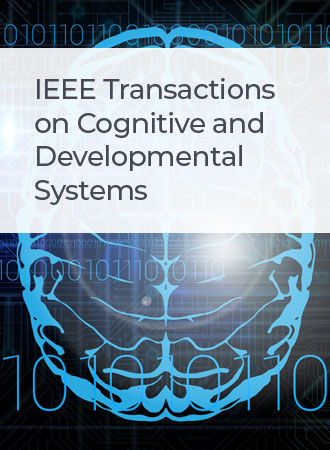A Behavioral Decision-Making Model of Learning and Memory for Mobile Robot Triggered by Curiosity
IF 4.9
3区 计算机科学
Q1 COMPUTER SCIENCE, ARTIFICIAL INTELLIGENCE
IEEE Transactions on Cognitive and Developmental Systems
Pub Date : 2024-09-05
DOI:10.1109/TCDS.2024.3454779
引用次数: 0
Abstract
Learning and memorizing behavioral decision in the process of environmental cognition to guide future decision is an important aspect of research and application in mobile robotics. Traditional rule-based behavioral decision approaches have difficulty in adapting to complex and changing environments. The offline decision-making approaches lead to poor adaptability to dynamic environments, while behavioral decision-making based on reinforcement learning relies on data acquisition, and the learned knowledge cannot guide mobile robots to quickly adapt to new environments. To address this issue, this article proposes a brain-inspired behavioral decision model that can perform incremental learning by simulating the logical structure of memory classification in the brain, as well as the memory conversion mechanisms of hippocampus, prefrontal cortex, and anterior cingulate cortex. The model interacts with the environment through semisupervised learning and learns the current decision online, simulating the memory function of humans to enable mobile robots to adapt to changing environments. In addition, an internal reward mechanism driven by curiosity is designed, simulating the reinforcement mechanism of curiosity in human memory, encoding the memory of unfamiliar behavioral decisions for mobile robots, and consolidating the memory of frequently made behavioral decisions, improving the learning and memory capacity of mobile robots in environmental cognition. The feasibility of the proposed model is verified by physical experiments in different environments.由好奇心触发的移动机器人学习和记忆行为决策模型
学习和记忆环境认知过程中的行为决策以指导未来决策是移动机器人研究和应用的一个重要方面。传统的基于规则的行为决策方法难以适应复杂多变的环境。离线决策方法导致对动态环境的适应性差,而基于强化学习的行为决策依赖于数据采集,学习到的知识不能指导移动机器人快速适应新环境。为了解决这一问题,本文提出了一种大脑启发的行为决策模型,该模型通过模拟大脑中记忆分类的逻辑结构,以及海马、前额叶皮层和前扣带皮层的记忆转换机制来进行增量学习。该模型通过半监督学习与环境交互,在线学习当前决策,模拟人类的记忆功能,使移动机器人能够适应不断变化的环境。此外,设计了好奇心驱动的内部奖励机制,模拟人类记忆中好奇心的强化机制,对移动机器人不熟悉的行为决策进行记忆编码,对频繁做出的行为决策进行记忆巩固,提高移动机器人在环境认知中的学习记忆能力。通过不同环境下的物理实验验证了该模型的可行性。
本文章由计算机程序翻译,如有差异,请以英文原文为准。
求助全文
约1分钟内获得全文
求助全文
来源期刊

IEEE Transactions on Cognitive and Developmental Systems
Computer Science-Software
CiteScore
7.20
自引率
10.00%
发文量
170
期刊介绍:
The IEEE Transactions on Cognitive and Developmental Systems (TCDS) focuses on advances in the study of development and cognition in natural (humans, animals) and artificial (robots, agents) systems. It welcomes contributions from multiple related disciplines including cognitive systems, cognitive robotics, developmental and epigenetic robotics, autonomous and evolutionary robotics, social structures, multi-agent and artificial life systems, computational neuroscience, and developmental psychology. Articles on theoretical, computational, application-oriented, and experimental studies as well as reviews in these areas are considered.
 求助内容:
求助内容: 应助结果提醒方式:
应助结果提醒方式:


